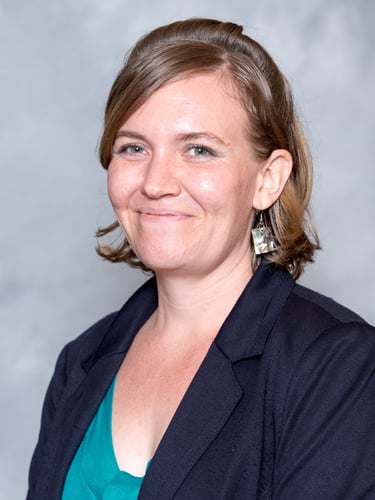Faculty voice: Two selves
I grew up in a trailer in the middle of rural Ohio with a gigantic family that supported each other and knew everything about everyone else. Outside of my teachers at school and a handful of people in my church, I knew no one personally who had attended college.
What did I anticipate from a college degree? I’m not sure I remember. I had this vague sense that it was the way out of a life that didn’t seem like it fit me. I knew I didn’t want to spend my life asking which bill I wouldn’t pay this month or scrambling when an appliance broke.
I chose a small liberal arts school in the middle of Iowa, called Grinnell College. I chose this institution based on exactly two factors: (1) they offered me the best financial aid package; and (2) they sent me a recruiting postcard that caught my attention in the large pile of recruiting materials.
I ended up in physics largely by accident and, as luck would have it, it was my favorite because it challenged me to think in new and interesting ways.
While I was at school, I loved being surrounded by folks who read as voraciously as I did and who wanted to talk about why things worked. I also struggled immensely in classes as I navigated making sense of what professors wanted me to be able to do and how the textbooks never seemed to tell me how to do it.
In school I worked hard, but I struggled for every ounce of recognition. On the other hand, when I was at my off-campus jobs I became a top-notch employee – someone who never complained and who always showed up for work on time. I fed people, cleaned up messes and was constantly praised for my hard work.
My first winter break while I was home working at Wendy’s, my supervisor told me a story about her sister who had gone to college to be an engineer and now she was “too good” for her family. She said this with clear distaste for her sister and, in that moment, I felt my resolve for continuing college crumble – I didn’t want to become too good for my family.
